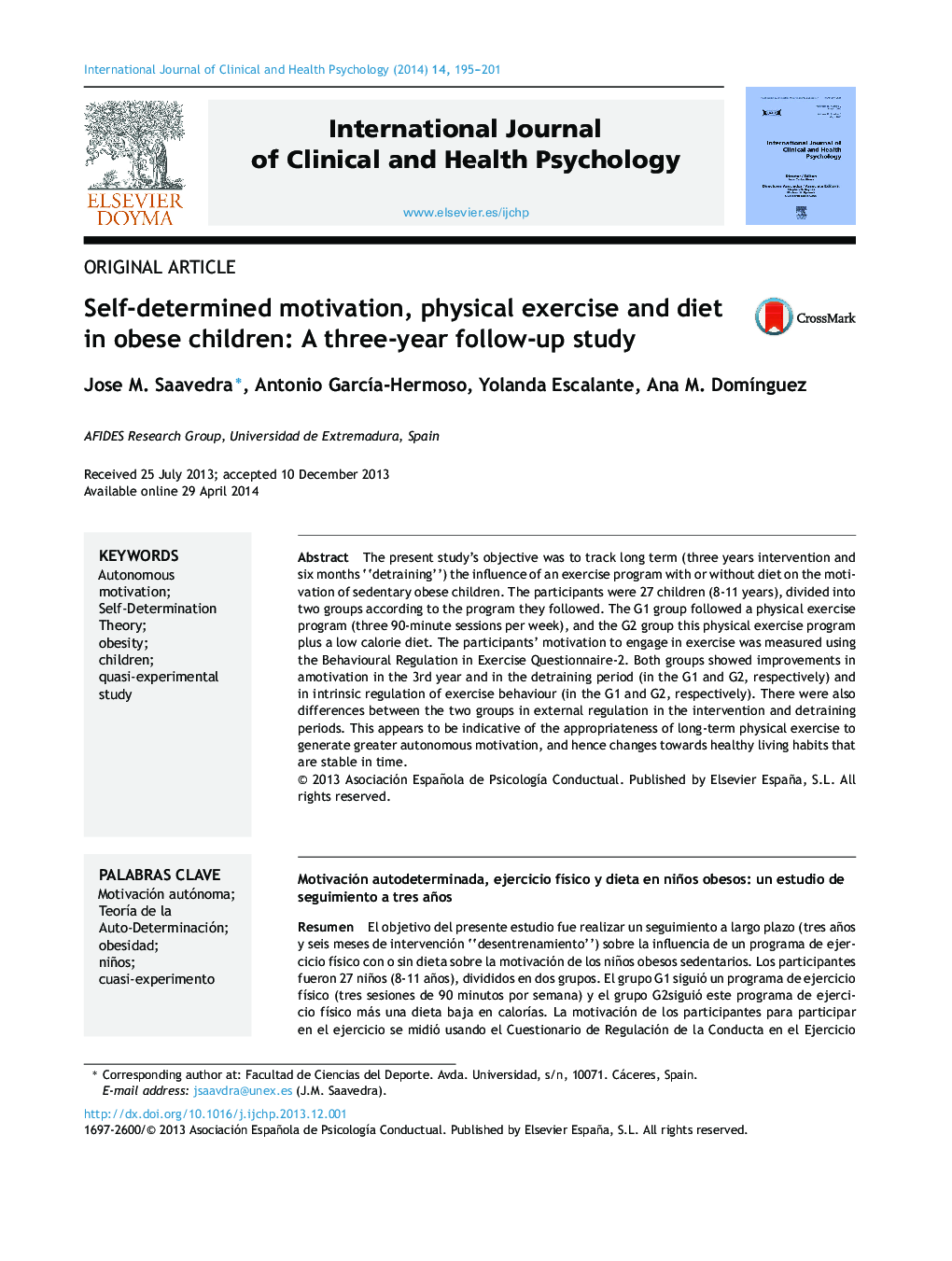| Article ID | Journal | Published Year | Pages | File Type |
|---|---|---|---|---|
| 879981 | International Journal of Clinical and Health Psychology | 2014 | 7 Pages |
The present study's objective was to track long term (three years intervention and six months “detraining”) the influence of an exercise program with or without diet on the motivation of sedentary obese children. The participants were 27 children (8-11 years), divided into two groups according to the program they followed. The G1 group followed a physical exercise program (three 90-minute sessions per week), and the G2 group this physical exercise program plus a low calorie diet. The participants’ motivation to engage in exercise was measured using the Behavioural Regulation in Exercise Questionnaire-2. Both groups showed improvements in amotivation in the 3rd year and in the detraining period (in the G1 and G2, respectively) and in intrinsic regulation of exercise behaviour (in the G1 and G2, respectively). There were also differences between the two groups in external regulation in the intervention and detraining periods. This appears to be indicative of the appropriateness of long-term physical exercise to generate greater autonomous motivation, and hence changes towards healthy living habits that are stable in time.
ResumenEl objetivo del presente estudio fue realizar un seguimiento a largo plazo (tres años y seis meses de intervención “desentrenamiento”) sobre la influencia de un programa de ejercicio físico con o sin dieta sobre la motivación de los niños obesos sedentarios. Los participantes fueron 27 niños (8-11 años), divididos en dos grupos. El grupo G1 siguió un programa de ejercicio físico (tres sesiones de 90 minutos por semana) y el grupo G2siguió este programa de ejercicio físico más una dieta baja en calorías. La motivación de los participantes para participar en el ejercicio se midió usando el Cuestionario de Regulación de la Conducta en el Ejercicio Físico-2. Ambos grupos mostraron mejoras en la desmotivación en el tercer año y en el período de desentrenamiento (en los grupos G1 y G2, respectivamente) y en la regulación intrínseca de comportamiento de ejercicio (en los grupos G1 y G2, respectivamente). Esto parece ser indicativo de la idoneidad del ejercicio físico a largo plazo para generar una mayor motivación autónomay por, lo tanto, los cambios hacia hábitos de vida saludables son más estables en el tiempo.
